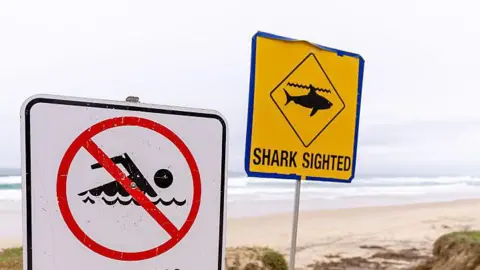Mauricio Hoyos still remembers the pressure that the jaws of a female Galapagos shark, over 3m (10ft) in length, exerted on his skull.
The animal had lunged at him with astonishing speed, giving him barely enough time to duck his head in a last ditch effort to protect his jugular vein.
When it closed its jaw, I felt the pressure of the bite, and then, after what I think was a second, it opened it again and let me go, Hoyos recalled from his home in Baja California, Mexico, over a month after the incident.
Hoyos, a marine biologist with over 30 years of experience studying sharks in their natural habitat, was on a research trip in Costa Rica when attacked in September.
Less than two months later, still bearing the scars from the encounter, he describes his recovery as incredible and even hopes to encounter his assailant again.
What happened during the attack was a result of normal animal behavior when faced with a perceived threat, according to Hoyos. In this case, this bite was like a dog's. It's a quick bite without intent to inflict serious harm.\
He had been alerted to the shark's presence by tourists and was attempting to tag it with an acoustic device when the shark reacted differently from those he had tagged in the past.
I remember seeing her eye and how calmly she turned around before lunging at me. I felt her lower jaw digging into my cheek and her upper jaw on my head. After what felt like a second, she just opened her mouth and let me go, he reflected.
The attack not only left him with severe facial injuries but ruptured his diving apparatus, leaving him in danger as he struggled to ascend to the surface.
Despite the pain that wouldn’t hit him until later, the adrenaline he experienced during the attack helped him execute a carefully coordinated escape from the shark and a safe return to the boat.
Hoyos, who has always advocated for shark conservation, expresses gratitude for surviving the ordeal. He emphasizes the vital ecological role sharks play in maintaining ocean ecosystems and hopes to continue his research, having scheduled a dive back to the site of the attack in January.
Many people think the oceans would be better off without sharks, Hoyos states. But they're crucial for keeping balance in the marine environment. This shark spared my life, and I now carry a battle scar that fuels my advocacy for their conservation.
















